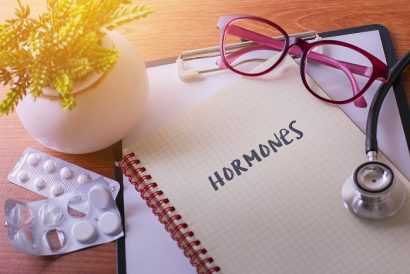Female Hormones and Dental Health – The Surprising Correlation You Need to Know About
Written by Consumer Guide to Dentistry Last modified on November 22, 2017
Hormones are the incredibly powerful “chemical messengers” of the body that regulate everything from growth and development, to mood, reproduction and metabolism. Hormones impact men and women in different ways, many of which you’re no doubt familiar with. But when it comes to female hormones, there’s a dental health correlation that might surprise you. And it’s something every woman should be aware of.
Estrogen and progesterone cause an increase in blood flow to the gums which can lead to inflammation that leaves women more susceptible to oral health problems like gum disease. For example, the hormonal surges that occur during menstruation open the door for plaque and oral bacteria to cause more damage than normal. This can lead to gum swelling and bleeding, and leave women more susceptible to canker sores. Unchecked, this hormonal-related damage to gum tissue can lead to gingivitis and eventually gum disease.

Gum disease is a serious oral health condition that can lead to recession of the gingival tissue that helps support the teeth, eventually leading to decay and tooth loss. These changes can drastically alter the health and functionality of your smile by impacting everything from your bite to your general health. Studies have linked gum disease with an increased risk for serious systemic health issue like diabetes, heart disease, cancer and osteoporosis. The good news is that gum disease is reversible if diagnosed early enough.
Menstruation isn’t the only time during which women experience the sort of hormonal imbalance that can lead to gum inflammation. Girls going through puberty will likely experience similar risks of gum inflammation and a greater frequency of canker sores. It’s important to pay close attention to oral health during this period to avoid dental problems.
Birth control pills no longer boast a high enough level of estrogen and progesterone to cause inflammation, but they have been linked with another oral health problem called dry socket. Studies suggest that women using birth control who undergo tooth extraction are nearly twice as likely to suffer from dry socket. The condition occurs when the blood clot that protects the post-extraction hole in the bone dissolves, leaving the nerve exposed and the socket at risk of infection.
Pregnancy represents another scenario in which a woman’s hormones surge, greatly impacting gum and oral health. In fact, gingival issues are so commonplace during pregnancy that there’s even a term for it: pregnancy gingivitis. Untreated gingivitis or gum disease during pregnancy can lead to benign pregnancy tumors that can make eating and speaking difficult. (Check out our article on pregnancy and oral health for more info.) Fortunately such tumors can be removed by your dentist, but are obviously an unnecessary health-related hurdle you’d like to avoid during pregnancy.
Menopause boasts additional oral health concerns that include increased tooth sensitivity, dry mouth and bone loss. The hormonal changes associated with menopause can inhibit the natural flow of saliva, putting women more at risk of dry mouth, which in turn leaves them susceptible to issues like bad breath, decay and gum disease. Saliva serves an integral role in protecting the mouth and fostering a healthy environment. (Read 5 essential benefits of saliva.) Diminished estrogen levels can cause a loss of bone density which can result in tooth loss if the jawbone is affected.
The long and the short of it all is that women face a number of dental health challenges throughout their lives tied directly to their hormones. Identifying these “at-risk” periods is essential for safeguarding against dental problems like gum disease or tooth loss. Dentists recommend paying particularly close attention to dental health during these specific periods, in addition to maintaining regular checkups and speaking openly about any dental health concerns.
For more information about the correlation between female hormones and dental health, check out this comprehensive article from the American Dental Association.


